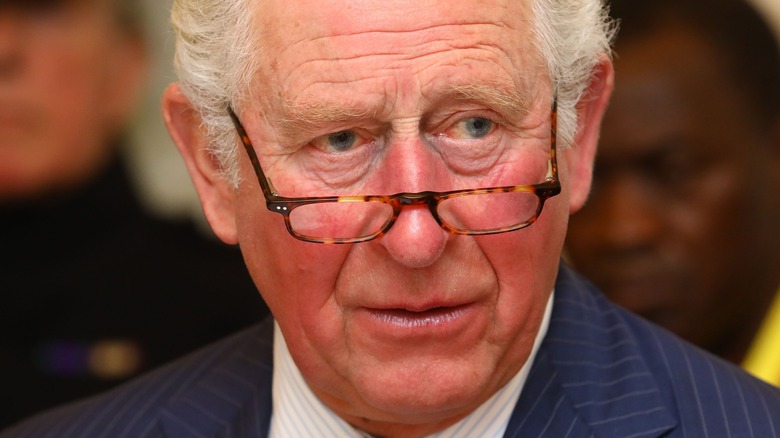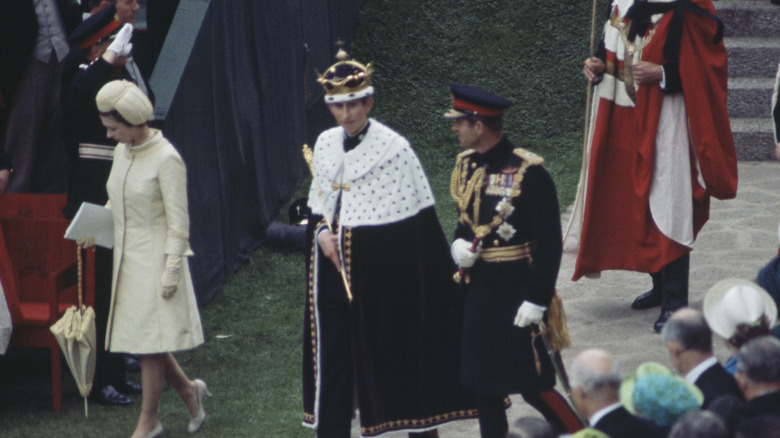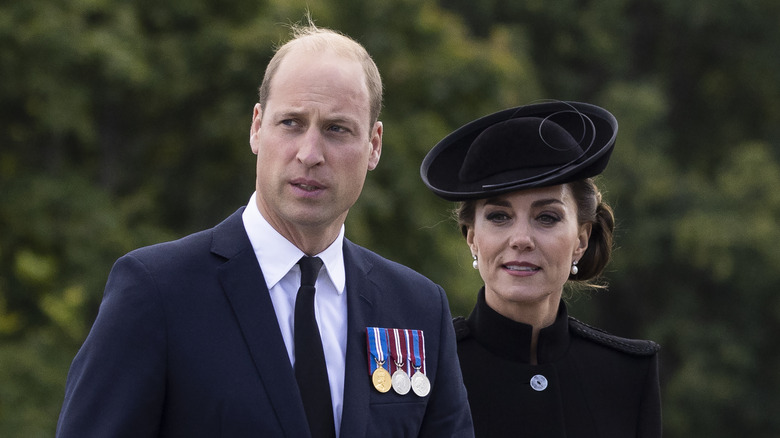King Charles' History With Wales Hasn't Gone Without Controversy
Many of us might think of the United Kingdom of Great Britain and Northern Ireland as one country. As with many things involving politics, though, the reality is more complicated.
The United Kingdom is actually made up of four countries: England, Scotland, Wales, and Northern Ireland, per Historic UK. Wales was first annexed by England in 1284, and the two countries were joined as one kingdom in the 16th century by the pleasure of King Henry VIII (he of the six wives), per Britannica. After that, the Welsh were allowed to send their own representatives to parliament and were awarded the same political rights as the English.
By then, though, the title of Prince of Wales had passed to English heirs. Per The Washington Post, the last Welsh-born Prince of Wales, Dafydd ap Gruffydd, fought against the English and was killed in 1283 so King Edward I could name his son in Dafydd's place. Since then, the title has traditionally been given to the heir to the English throne.
Prince Charles' investiture as Prince of Wales was controversial
It is this fractured relationship between Wales and England that played out during King Charles III's time as Prince of Wales. While he was named Prince of Wales when he was just 9 years old, per Town and Country, Charles was actually "formally presented" to the Welsh in a ceremony known as an investiture in Wales' Caernarfon Castle in 1969, per BBC.
The ceremony was grand, with 4,000 guests in attendance. Charles even delivered the first part of the speech in Welsh, per The Washington Post. But outside the castle grounds, there were protests by Welsh nationalists, and the paramilitary Free Wales Army had expressed the desire to launch a bombing campaign during the ceremony, per ITV. The group nearly succeeded, injuring a child in the process. The idea of yet another English bearing the title of Prince of Wales was unpopular, even though Charles had lived in Wales for a time and spoke the language.
King Charles' investiture as Prince of Wales is unlikely to be repeated
Charles eventually went on to become the longest-serving Prince of Wales and named his son and heir, Prince William, as the new Prince of Wales not long after he became king, but the title remains controversial — as does the status of Wales as part of the United Kingdom. Per The Guardian, a movement to declare Wales an independent nation is growing. An ITV Wales Yougov Poll published mere months before Queen Elizabeth's death showed less than 50% of respondents would support a new Prince of Wales after Charles.
It doesn't help that King Charles III chose to visit Wales for the first time as king on September 16, 2022, a day that is close to the heart of Welsh nationalists. As Welsh actor Michael Sheen points out in a cutting video delivered on Twitter, it is the day the Welsh celebrate Owain Glyndwr, who proclaimed himself the rightful Prince of Wales and led a rebellion against the English government in the 15th century, per History UK. Many consider him to be the last native Prince of Wales. As Sheen explains, "There is more than one story in these isles, there is more than one tradition, more than one history."
It is because of this contentious history between the royal family and Wales that the new Prince of Wales, Prince William, is not likely to have an investiture ceremony of the kind his father had in 1969, per BBC.


